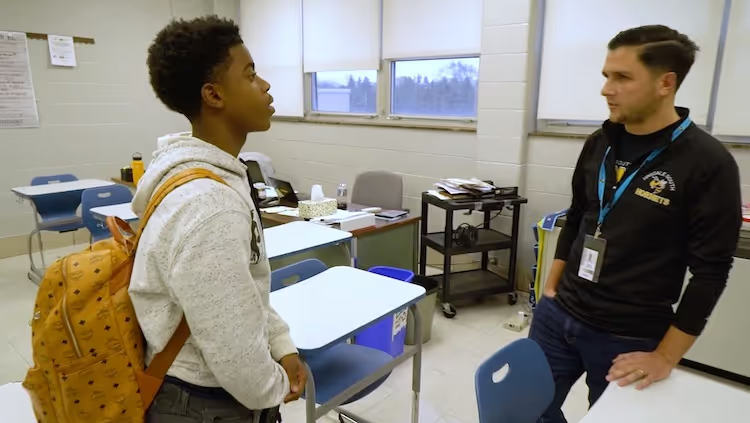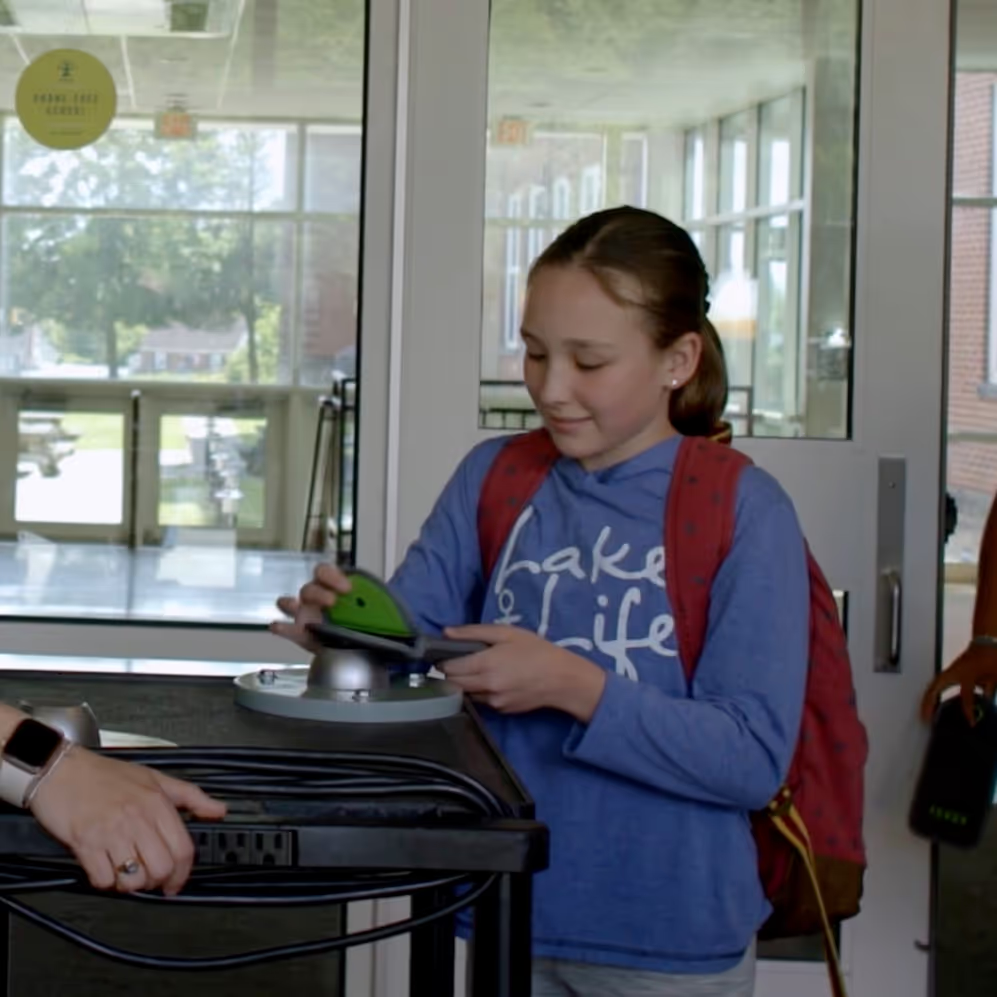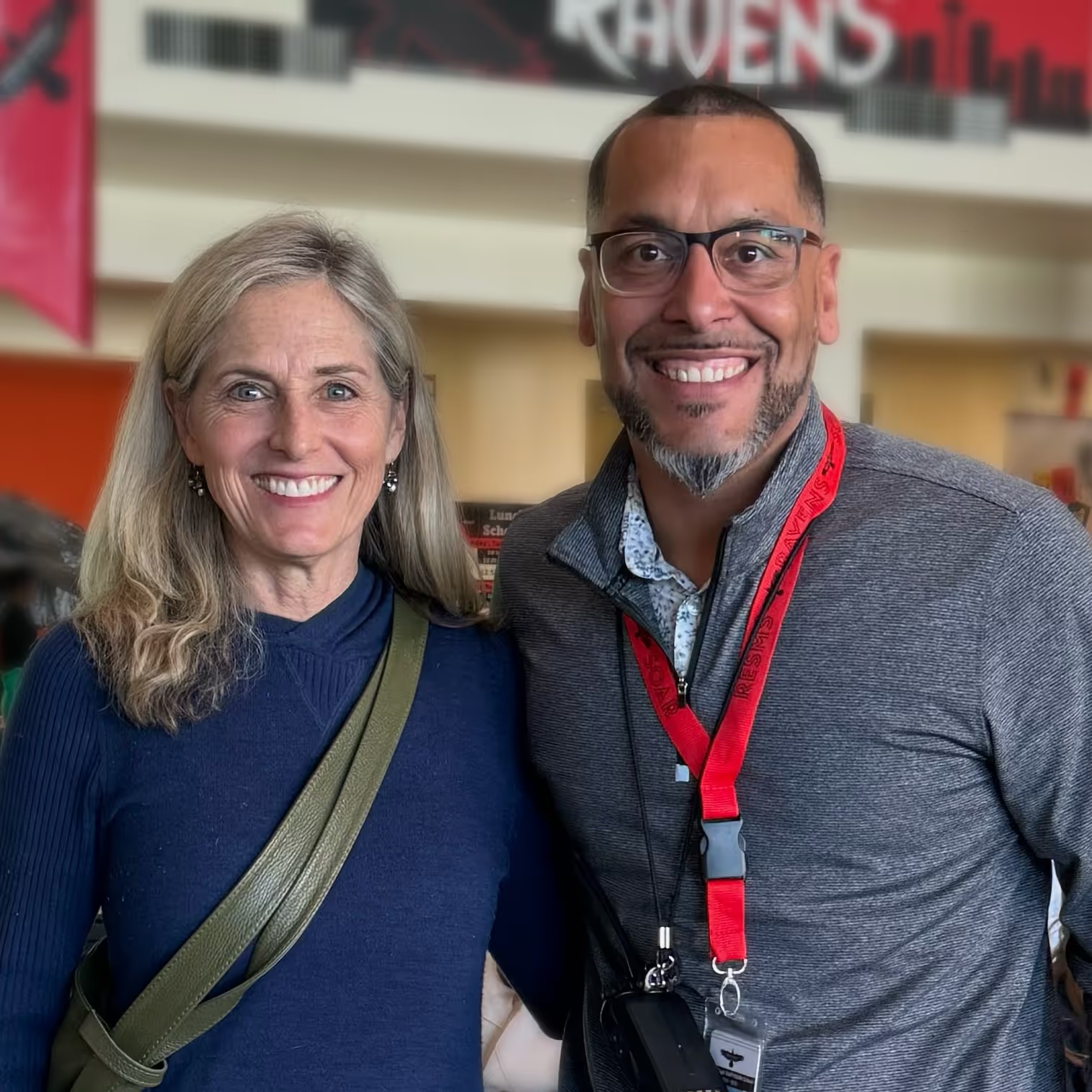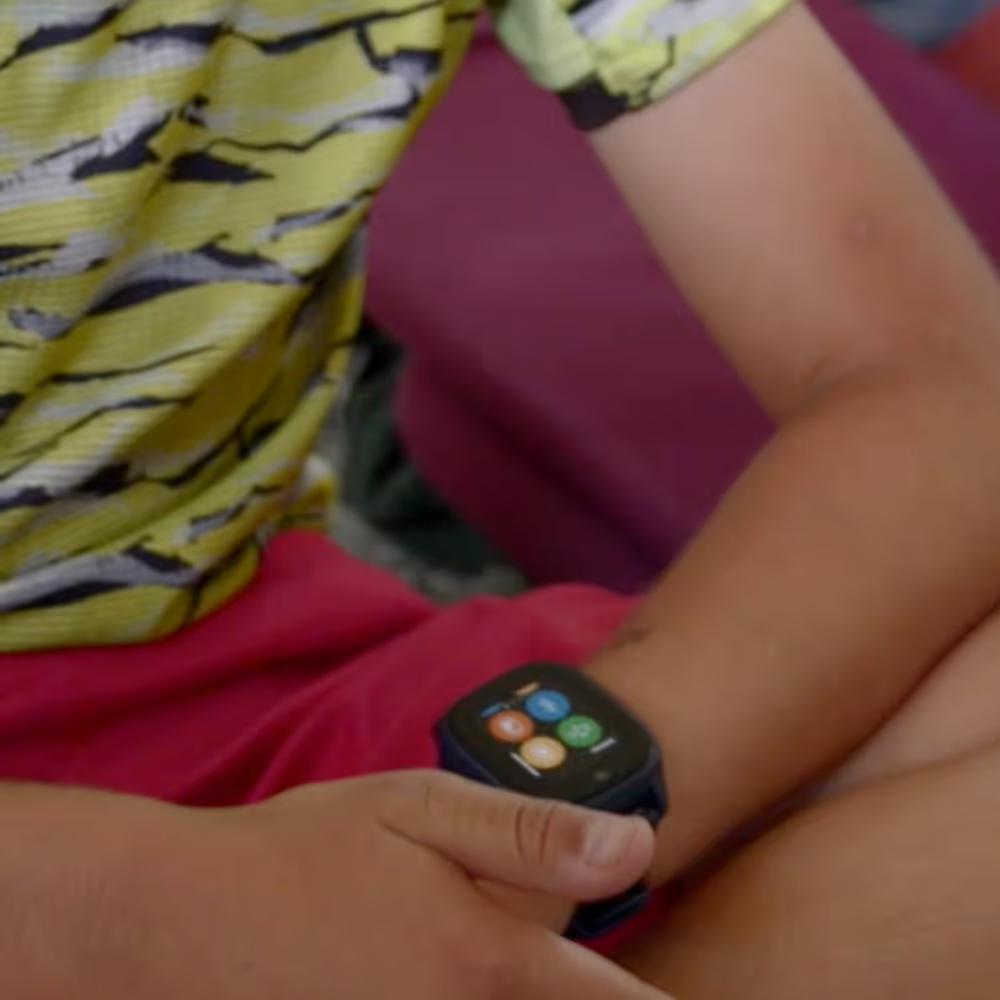


I have been thinking a lot about going back to school, and recently, I listened to the behavioral scientist BJ Fogg uses the term “skill them up” when talking about how to help someone activate and reach a goal in their life.
#1 Help them see themselves as changemakers. This is incredibly important right now as the stressors around our ongoing pandemic continue to dampen moods. Theologian Niebuhr’s prayer about accepting things one cannot change and the courage to change things one can is particularly relevant right now. Focusing on what we can change boosts moods and helps us feel like we matter. This action is so vital for our kids, whose minds can get stuck thinking, “Why does this matter? Why do I matter?”
So how to help build this skill of being a changemaker? One way is to have them listen with you to this week’s 12-minute episode (8 min if you listen at 1.5x) of the Screenagers Podcast, where I interview a policy expert around social and emotional learning. He gives specific actions we can all take to advocate for increased mental wellness discussions and support in our schools.
Learn more about showing our movies in your school or community!
Join Screenagers filmmaker Delaney Ruston MD for our latest Podcast

Learn more about our Screen-Free Sleep campaign at the website!
Our movie made for parents and educators of younger kids
Learn more about showing our movies in your school or community!
#2 This relationship skill is vital. When you ask someone to help you, and they do, they care more about you. For instance, ask someone who had the same teacher the year before how they got the most out of the class. Or, ask a teacher for clarification about something on the syllabus, and the list goes on and on.This skill is based on the “Ikea effect,” which is when people put energy into something, they tend to value it more. A famous set of studies by Dan Ariel and team in 2011 found that people disproportionately value furniture they helped build than that which they did not help build.
The same goes for our relationships, as discussed by another well-known behavioral scientist Jon Levy. He makes the astute observation that we often think we are a bother if we ask for help, so we are inclined not to ask. And yet, when we decline, we miss a key opportunity.
Let’s say a teacher says something like, “I’m here for any of you after school, so please reach out to me.” Some students think how this would be a burden for the teacher. Yet what the student does not understand is that we HURT relationships when we don’t allow others to help us. We miss the opportunity for the other, in this case, the teacher, to invest in us, and that is what leads to their caring more, valuing the relationship more. It is the Ikea effect, but not about valuing furniture that we invest time in, but valuing people, we invest time in.
Learn more about showing our movies in your school or community!
Join Screenagers filmmaker Delaney Ruston MD for our latest Podcast

Learn more about our Screen-Free Sleep campaign at the website!
Our movie made for parents and educators of younger kids
Join Screenagers filmmaker Delaney Ruston MD for our latest Podcast
#3 The skill of knowing that the most successful people in workplaces and schools are “givers” (with the caveat that they have good boundaries). Author and psychologist Adam Grants’ seminal research around groups such as medical students and engineers shows that the top-performers are “givers” compared to “takers” and “matchers.” (Of note, sometimes the takers did better in the short run, but the givers come out on top in the long run.) The “givers” are generous with their time and energy with their colleagues. But they have to have boundaries in that if they are extreme givers and never get their own work done, then, not surprisingly, they perform the worst.
So how to do this? One great example is that youth often say they want their phones in the bedroom so they can help a friend at any time, day or night. Yet having their phone in their room negatively impacts sleep, which leads to all sorts of negative consequences. So one example of a “giver” with good boundaries is to have phones out of the bedroom at night and to let their friends know they don’t have their phones at night but that they want to be there for them in the day when possible. Some young people find it helpful to let their friends know when they won't be on social media or their phones because of other activities, set home limits, and so on.
As we’re about to celebrate 10 years of Screenagers, we want to hear what’s been most helpful and what you’d like to see next.
Please click here to share your thoughts with us in our community survey. It only takes 5–10 minutes, and everyone who completes it will be entered to win one of five $50 Amazon vouchers.
I have been thinking a lot about going back to school, and recently, I listened to the behavioral scientist BJ Fogg uses the term “skill them up” when talking about how to help someone activate and reach a goal in their life.
#1 Help them see themselves as changemakers. This is incredibly important right now as the stressors around our ongoing pandemic continue to dampen moods. Theologian Niebuhr’s prayer about accepting things one cannot change and the courage to change things one can is particularly relevant right now. Focusing on what we can change boosts moods and helps us feel like we matter. This action is so vital for our kids, whose minds can get stuck thinking, “Why does this matter? Why do I matter?”
So how to help build this skill of being a changemaker? One way is to have them listen with you to this week’s 12-minute episode (8 min if you listen at 1.5x) of the Screenagers Podcast, where I interview a policy expert around social and emotional learning. He gives specific actions we can all take to advocate for increased mental wellness discussions and support in our schools.
#2 This relationship skill is vital. When you ask someone to help you, and they do, they care more about you. For instance, ask someone who had the same teacher the year before how they got the most out of the class. Or, ask a teacher for clarification about something on the syllabus, and the list goes on and on.This skill is based on the “Ikea effect,” which is when people put energy into something, they tend to value it more. A famous set of studies by Dan Ariel and team in 2011 found that people disproportionately value furniture they helped build than that which they did not help build.
The same goes for our relationships, as discussed by another well-known behavioral scientist Jon Levy. He makes the astute observation that we often think we are a bother if we ask for help, so we are inclined not to ask. And yet, when we decline, we miss a key opportunity.
Let’s say a teacher says something like, “I’m here for any of you after school, so please reach out to me.” Some students think how this would be a burden for the teacher. Yet what the student does not understand is that we HURT relationships when we don’t allow others to help us. We miss the opportunity for the other, in this case, the teacher, to invest in us, and that is what leads to their caring more, valuing the relationship more. It is the Ikea effect, but not about valuing furniture that we invest time in, but valuing people, we invest time in.
#3 The skill of knowing that the most successful people in workplaces and schools are “givers” (with the caveat that they have good boundaries). Author and psychologist Adam Grants’ seminal research around groups such as medical students and engineers shows that the top-performers are “givers” compared to “takers” and “matchers.” (Of note, sometimes the takers did better in the short run, but the givers come out on top in the long run.) The “givers” are generous with their time and energy with their colleagues. But they have to have boundaries in that if they are extreme givers and never get their own work done, then, not surprisingly, they perform the worst.
So how to do this? One great example is that youth often say they want their phones in the bedroom so they can help a friend at any time, day or night. Yet having their phone in their room negatively impacts sleep, which leads to all sorts of negative consequences. So one example of a “giver” with good boundaries is to have phones out of the bedroom at night and to let their friends know they don’t have their phones at night but that they want to be there for them in the day when possible. Some young people find it helpful to let their friends know when they won't be on social media or their phones because of other activities, set home limits, and so on.
Sign up here to receive the weekly Tech Talk Tuesdays newsletter from Screenagers filmmaker Delaney Ruston MD.
We respect your privacy.
I have been thinking a lot about going back to school, and recently, I listened to the behavioral scientist BJ Fogg uses the term “skill them up” when talking about how to help someone activate and reach a goal in their life.
#1 Help them see themselves as changemakers. This is incredibly important right now as the stressors around our ongoing pandemic continue to dampen moods. Theologian Niebuhr’s prayer about accepting things one cannot change and the courage to change things one can is particularly relevant right now. Focusing on what we can change boosts moods and helps us feel like we matter. This action is so vital for our kids, whose minds can get stuck thinking, “Why does this matter? Why do I matter?”
So how to help build this skill of being a changemaker? One way is to have them listen with you to this week’s 12-minute episode (8 min if you listen at 1.5x) of the Screenagers Podcast, where I interview a policy expert around social and emotional learning. He gives specific actions we can all take to advocate for increased mental wellness discussions and support in our schools.

This year, millions of students are experiencing a major shift: school days without phones, smartwatches, or other personal devices. Today we explore the wins, hurdles, and solutions helping schools succeed. We also share our resources that you can use to support technology policy changes in your schools.
READ MORE >
I recently sat down with middle school principal Zach at his school in Washington State. We talked about the challenges Zach and his team faced in his early years as principal when students used phones during school, and how he brought about a powerful transformation by having phones and smartwatches put away in locked pouches for the whole school day. In today’s blog, to raise awareness of the challenges, I share five real examples from Zach of the troubling ways students use phones at school to be unkind.
READ MORE >
It is with great pleasure that I share with you today a piece that Lisa Tabb and I did for Jonathan Haidt's (Author of The Anxious Generation) and researcher Zack Rausch's Substack blog — After Babel. In it, we discuss the rise in use of smartwatches in elementary schools and the problems they pose. There is a real cost to arming (pun intended) our kids with these devices and sending them to school. Now is the time to stop and fully address this topic and ensure that schools become smartwatch and phone-free.
READ MORE >for more like this, DR. DELANEY RUSTON'S NEW BOOK, PARENTING IN THE SCREEN AGE, IS THE DEFINITIVE GUIDE FOR TODAY’S PARENTS. WITH INSIGHTS ON SCREEN TIME FROM RESEARCHERS, INPUT FROM KIDS & TEENS, THIS BOOK IS PACKED WITH SOLUTIONS FOR HOW TO START AND SUSTAIN PRODUCTIVE FAMILY TALKS ABOUT TECHNOLOGY AND IT’S IMPACT ON OUR MENTAL WELLBEING.
